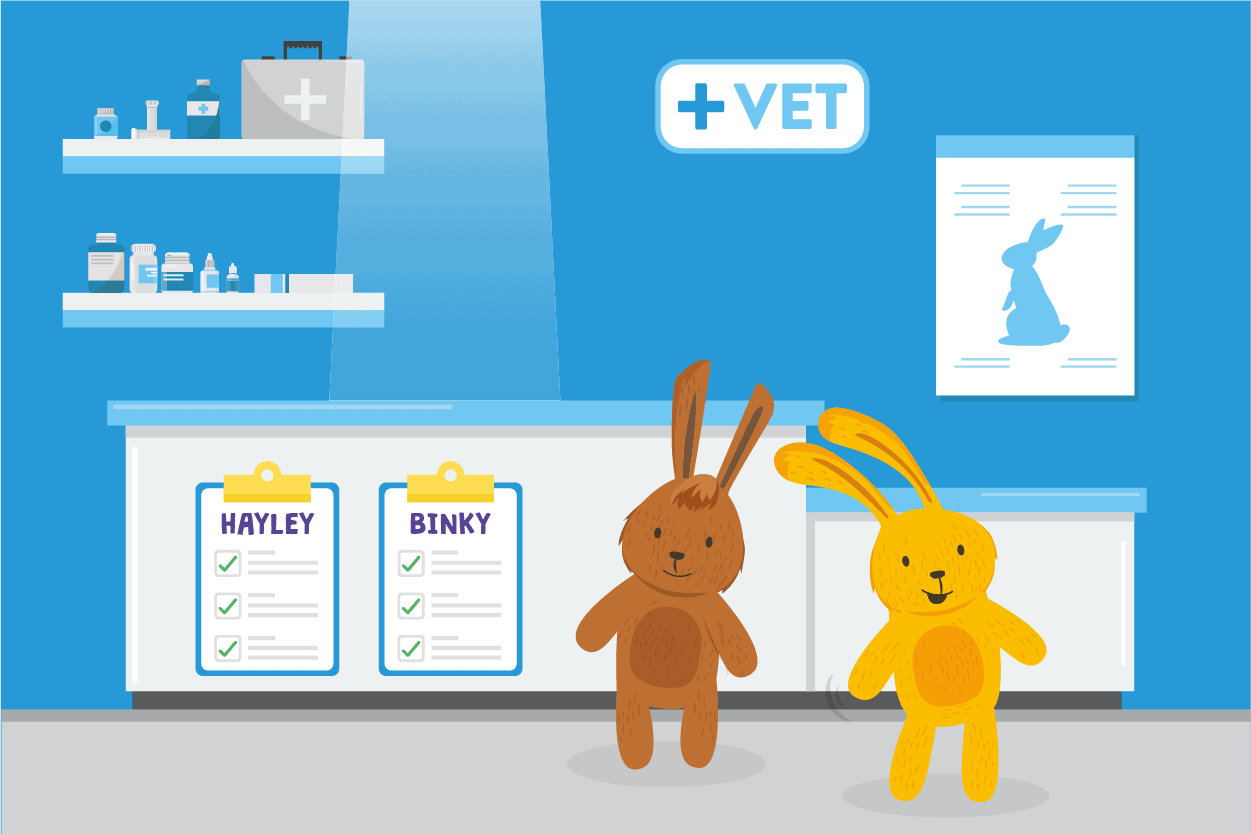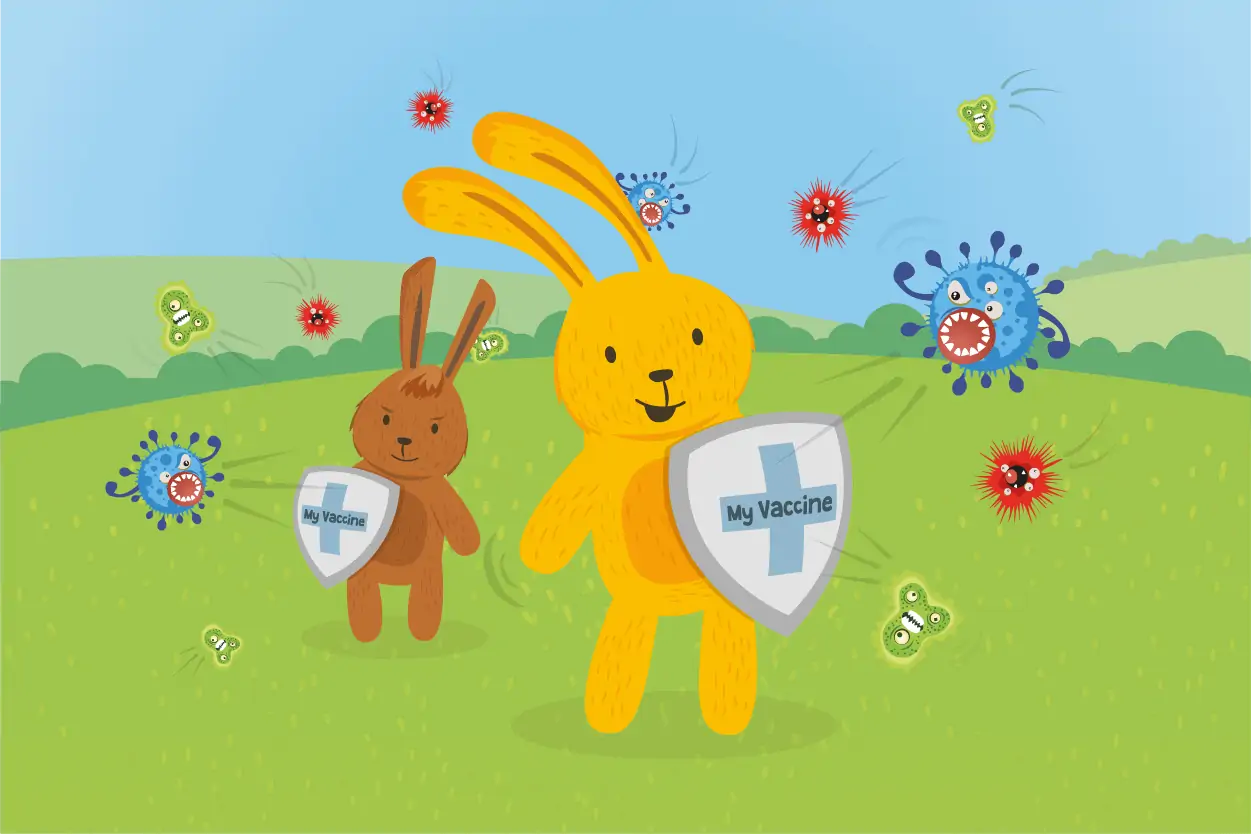Your Rabbits’ Health
Keeping happy and healthy rabbits
The average life span for a domesticated rabbit is between 8 – 12 years. To help your rabbits live a long and happy life, you need to look after all of their welfare needs, including their health. That's why this year's RAW theme is Neutering: Protect and Prevent! Protecting rabbits from reproductive diseases and preventing unwanted litters.
Neutering your rabbits’ health is a key part to helping keep them happy. Neutering not only prevents breeding and unwanted litters but also prevents diseases linked to reproductive organs. In fact, around 80% of unneutered female rabbits develop cancer of the womb by the age of five.
Rabbits are prey animals, which unfortunately means they hide the signs of injury or ill health. This means it is even more important that, as their owner, you know what to look out for. It is vital that you register your rabbits with a bunny-friendly vet and take them at least once a year for a check-up and keep up to date with their essential vaccinations. If you’re ever worried or notice something isn’t quite right, always take your buns to the vet.
Common rabbit health problems
Neutering your rabbits
Neutering is the act of removing reproductive organs. this is known as spaying for females and castrating for males.
FEMALES:
Neutering your rabbits avoids unwanted litters. Unfortunately, up to 80% of un-neutered female rabbits can develop cancer of the uterus by the age of 5. Neutering your female rabbit at an early age will stop these cancers from developing.
MALES:
Un-neutered males can be aggressive to other rabbits. In comparison, neutered male rabbits can live happily with male and female rabbits. A neutered female and neutered male are usually the most successful pairing.

Vital vaccinations
What vaccinations do rabbits need? Vaccinations are essential to protect your rabbits against the deadly diseases, Myxomatosis, RVHD1 and RVHD2. These diseases are spread by contact with an infected rabbit or blood sucking insects, or via contaminated objects. There are no effective treatments for these diseases, so prevention through vaccinations is essential. Your rabbits should receive annual jabs at their vets to protect them and other rabbits.

Rabbit health check
Giving your rabbits a quick health check regularly is a great way to catch any signs of ill health early on. Plus, regular handling will help you improve your bond. Avoid washing your rabbit with water. If you do need to, be very gentle as the water can make them feel vulnerable.
You should groom your rabbits daily and this gives the perfect opportunity to check them over! Check their whole body and feel for any lumps or bumps. Your rabbits’ ears should be free from mites and fleas and their eyes should be clear and shiny with no discharge. Their bottom should always be clean to help prevent flystrike, and their nails shouldn’t be overgrown – if they are seek the advice of your vet. Keep an eye on their teeth to make sure they aren’t overgrowing and that there’s no excessive drooling – but be careful, they could bite!
If you notice anything out of the ordinary, for example if your rabbit’s breathing becomes fast or if your rabbit has diarrhoea, seek the advice of your vet. You know your rabbits best, so trust your instincts and get it checked out. Don’t forget to invest in a good quality pet insurance for your rabbits too. This can help you cover some of the costs.

